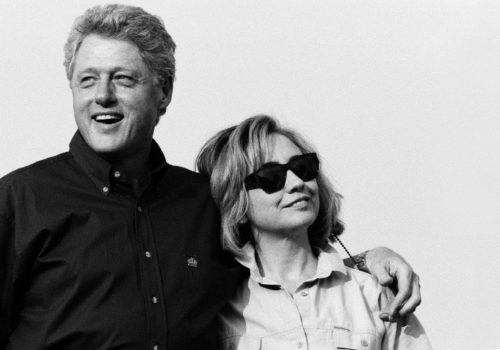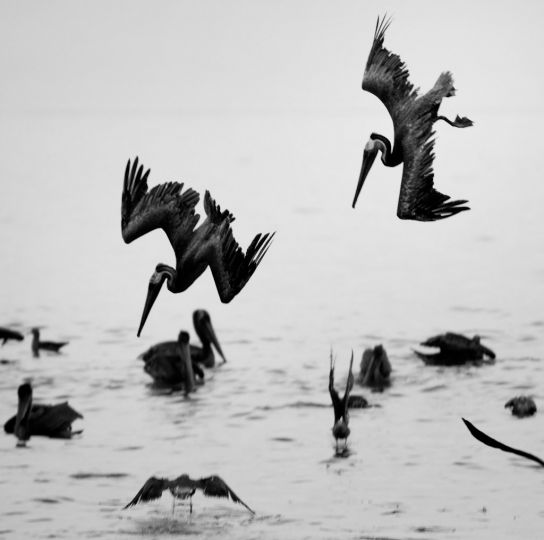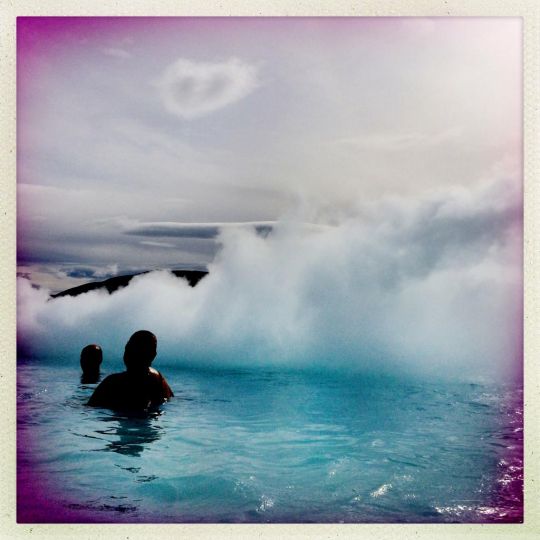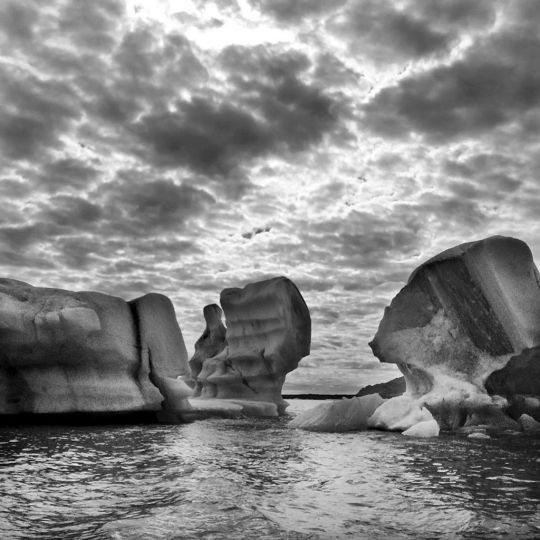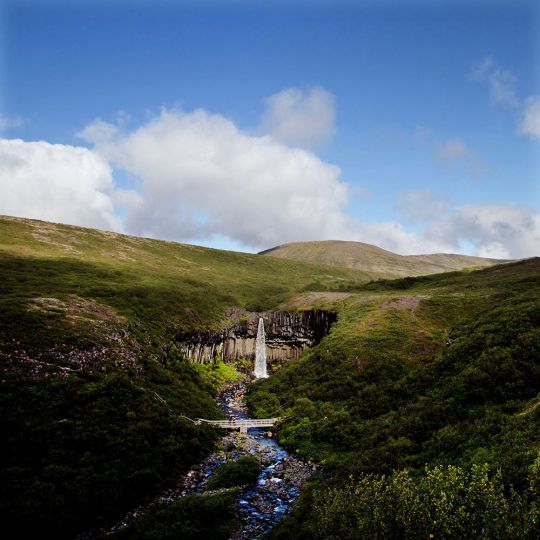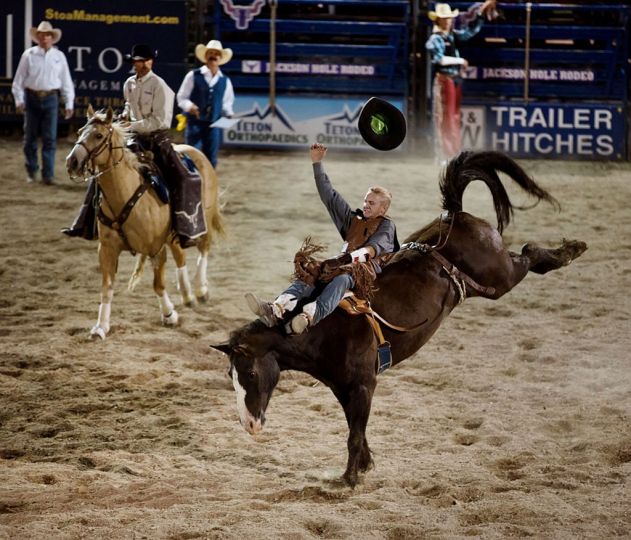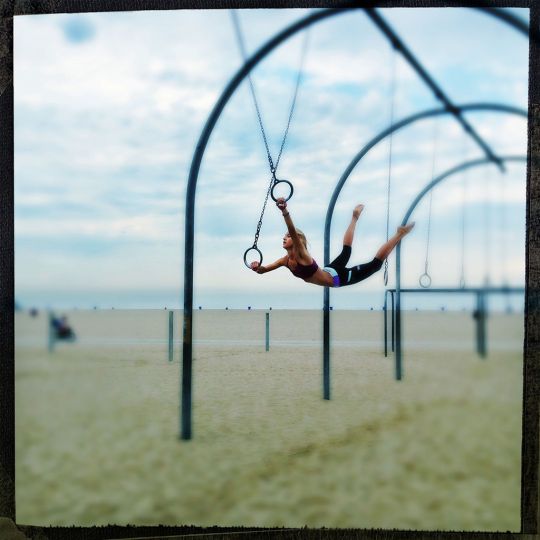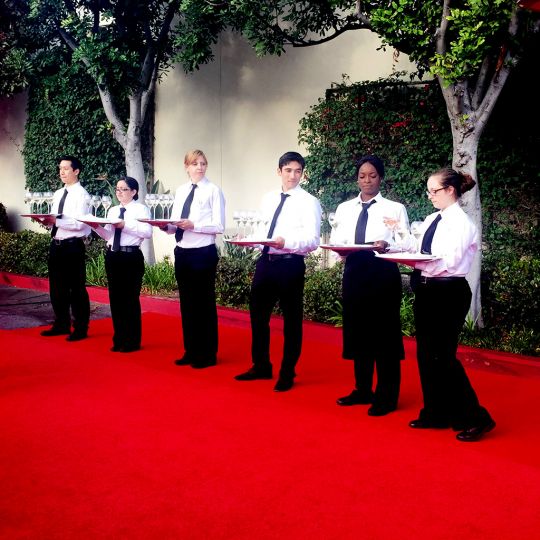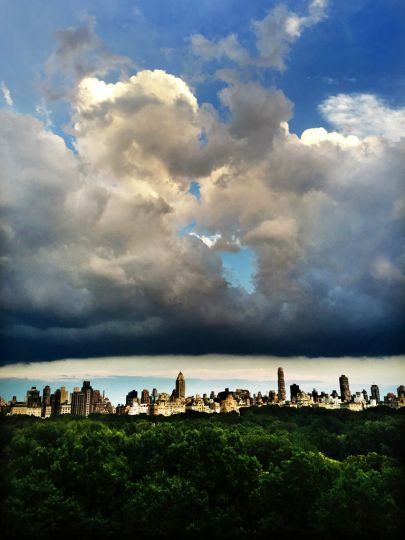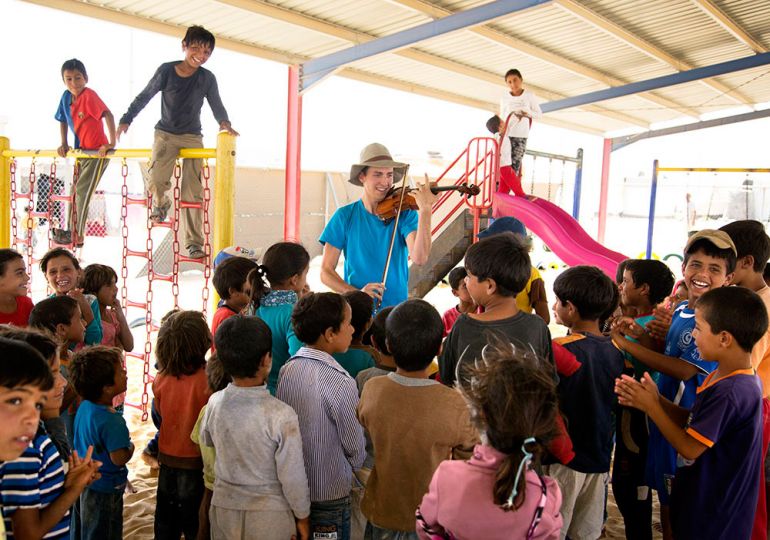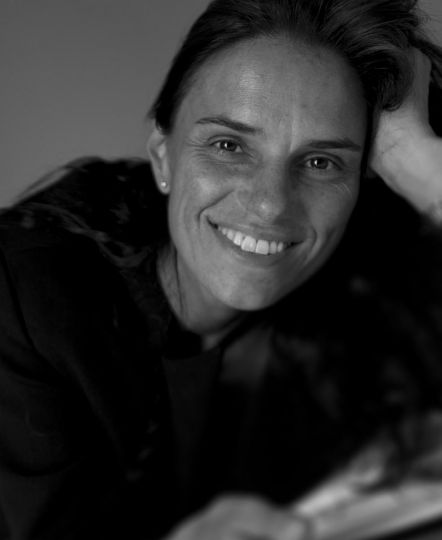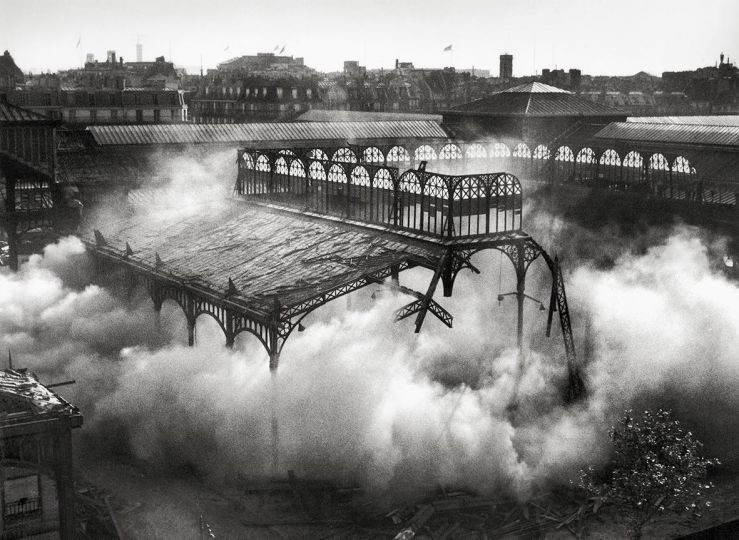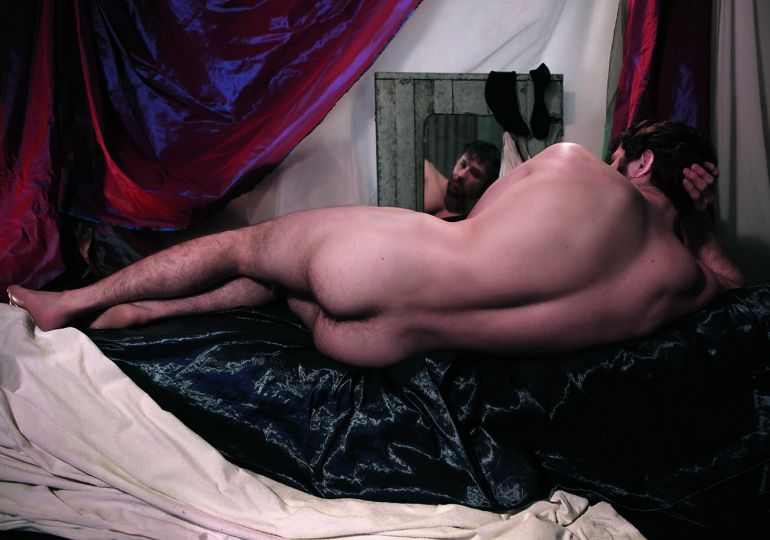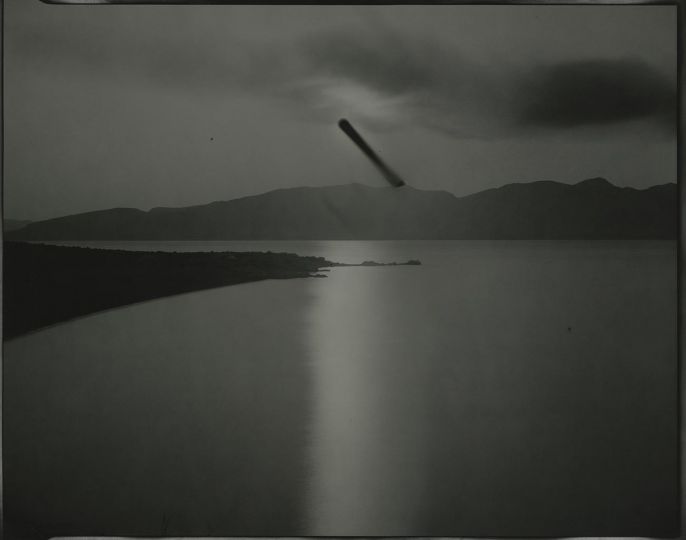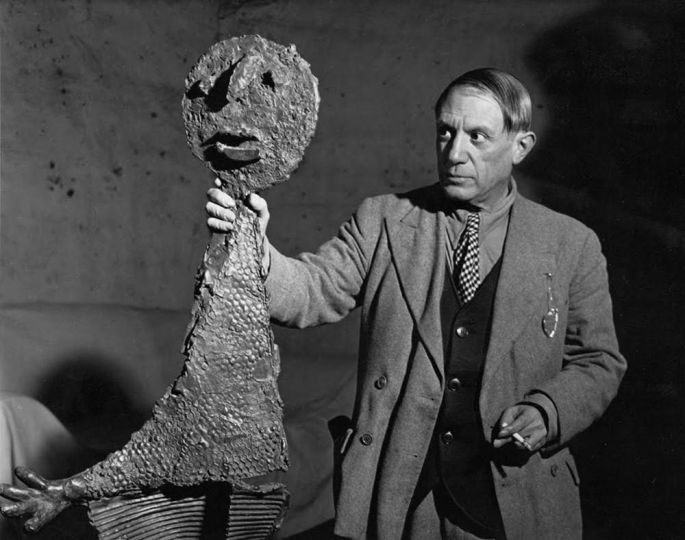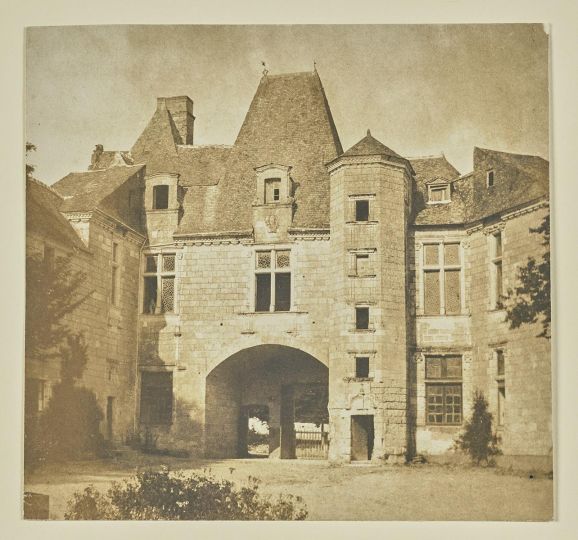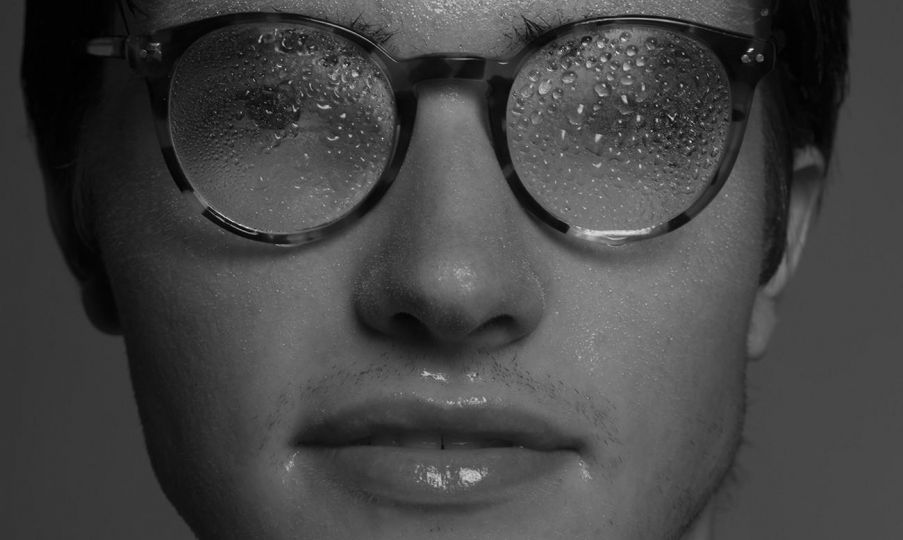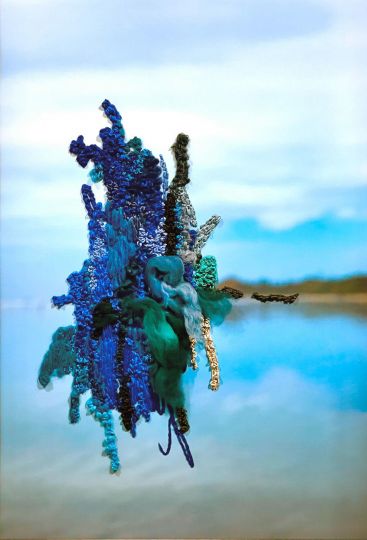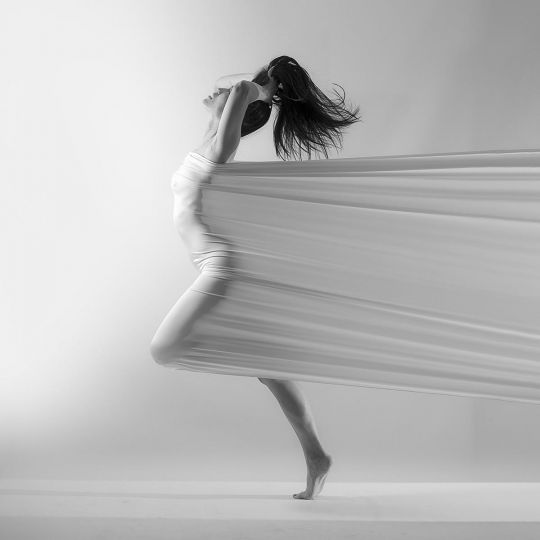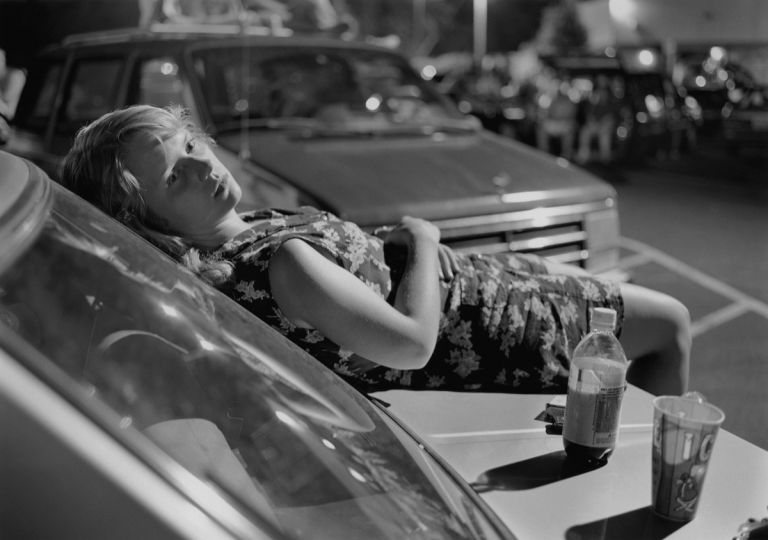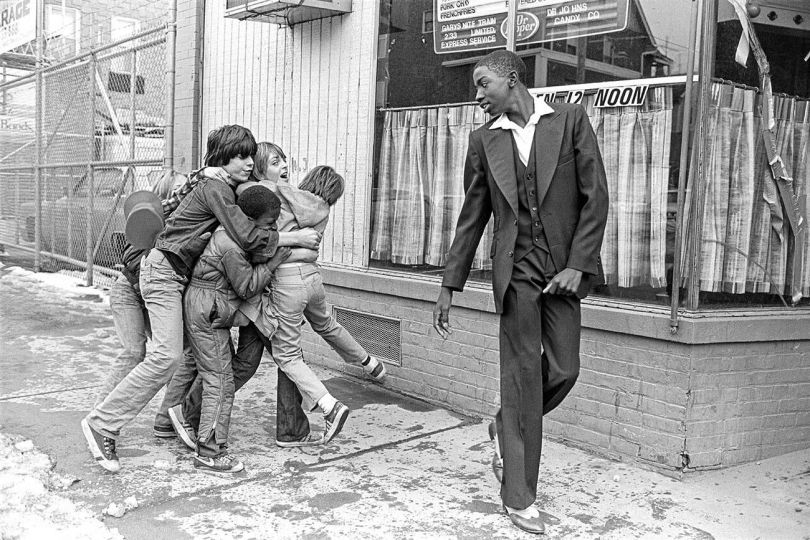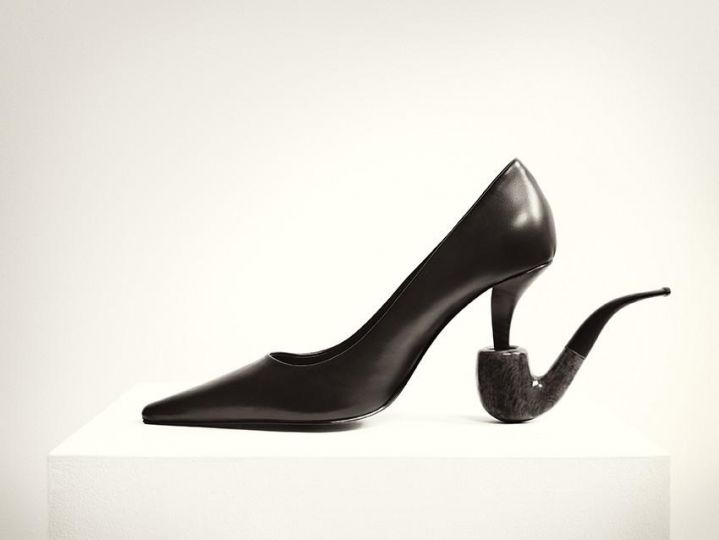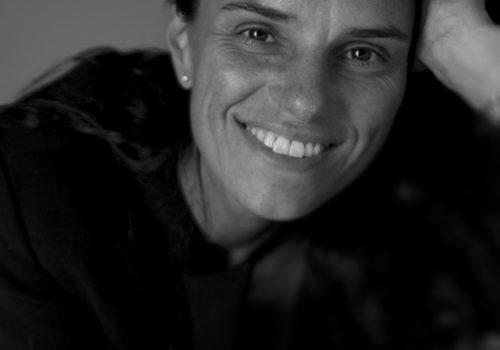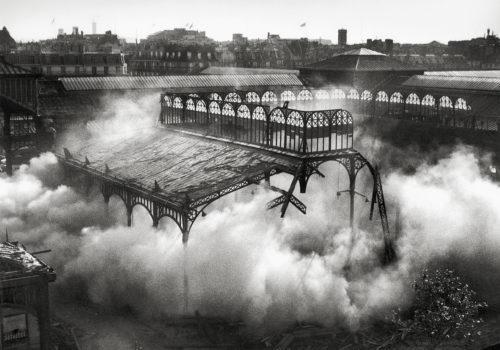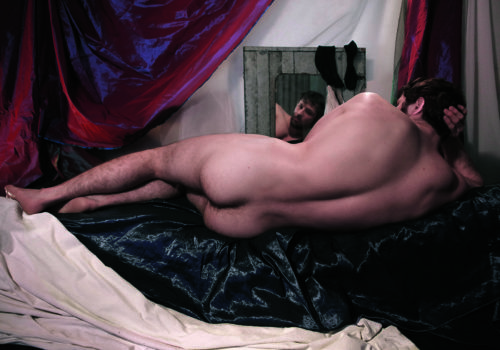I love being in the action. As a kid in Oregon, I distinctly remember seeing a big garage fire and watching the firemen try to put out the blaze, and then this guy with cameras dangling around his neck came along and flipped out his press pass. “Now there’s the perfect job,” I thought. You don’t have to fight the fire, but you can take pictures of it. I was the kid who always brought weird things to class to impress my friends—stuffed armadillos, live horned toads. News photography really had appeal to me. It was the ultimate show and tell.
News photographers tend to be tough, able to survive being shot at both for real and verbally. The way I grew up in the business, the photo editors weren’t polite people. You were afraid of not getting the picture because the consequences of getting yelled at by an editor were way worse than getting attacked on the street by rioters—you could get shot at, beaten up, they didn’t care. They just wanted to see the pictures. They didn’t have HR in those days to complain to. I got better at taking photos out of sheer fear.
I started out covering the 1966 midterm elections, and, by 1970, as a young United Press International wire-service shooter, I started covering the White House. I had my first ride on Air Force One at age 23 with President Richard Nixon. Over these past 50 years, I’ve covered just about every presidential candidate
and watched them work up close on the trail. The first president who understood the power of photography and what it could do for him was Abraham Lincoln, but the first modern president who knew precisely how he came across in photos was John F. Kennedy. JFK and his family were storybook people and looked great in photographs. You could study those pictures as a case history of how to do it right.
1 & 2 – October 24, 1966 – FIRST BRUSH WITH CELEBRITY
When Senator Robert Kennedy came to Portland, Oregon, in 1966, he was campaigning for the local congressional candidate, Edith Green. I’d never seen, much less photographed, anyone this famous. When I got to the labor hall, I didn’t know how to get through the crowd. I saw two photographers standing on the periphery—I didn’t know them, but it was clear they were traveling with the senator. One was Bill Eppridge of Life magazine, the other Steve Schapiro, a great civil rights photographer. I asked Eppridge, “How do you get through these crowds?” He said, “Hang on to my coat, kid.” I did, and he just sliced through the people and put me up into a good spot: “This is the best angle for you.” That photo of Senator Kennedy to this day is still one of my favorite shots of any politician. What really clinched it for me was that after the event, I followed Kennedy and his entourage out to the airport. His plane was waiting on the tarmac. The senator dashed up the steps, turned, waved, then entered the plane. But that’s not what rang my bell. That moment, the one that’s so clear
it could have happened yesterday, was when the two big- time photographers I had met followed right behind Senator Kennedy. As soon as they got into the plane, the door closed, and the plane taxied out and took off. What a profound impact that had on me. I felt like Rick in the final scene in Casablanca. I thought: I want to be on that plane. I want to see what’s going on. I want to be with the circus.
3 – June 5, 1968 – RFK’S FINAL MOMENTS
A terrible day in American history—and a personally devastating moment— came at the Ambassador Hotel in Los Angeles in the wee hours of June 5, 1968. UPI assigned me to cover Robert Kennedy’s rally after the results of the California primary were announced, and I was happy to be there. I got to the Ambassador early and went up to the floor where Kennedy and his staff were ensconced, and they let me in to hang out with
the group. I photographed Kennedy being interviewed by NBC’s Sander Vanocur. My colleague Ron Bennett, who had come down from Oregon to join the UPI staff, showed up, and we flipped a coin to see who would go up on the podium, the preferred spot, and who would shoot from the riser. I lost the flip, but did take one of the last pictures of Senator Kennedy alive, showing his moment of triumph as he made the victory sign.
Bennett followed Kennedy off the podium, and back into the hotel’s kitchen where the assassin Sirhan Sirhan lurked. Bill Eppridge
4 – August 12, 1968 – NIXON TAKES THE WHITE HOUSE
Immediately after the Miami Republican Convention, presidential nominee Richard Nixon and his team went out to Mission Bay near San Diego to formulate campaign strategy. I got this chummy photo of Nixon and Spiro Agnew. It’s possible that this may have been only the second time those guys met—Nixon apparently didn’t know Agnew when he chose him to be his running mate. This moment is a long way from Agnew writing in his memoir that years later Nixon and his chief of staff, Al Haig, planned to assassinate him if he refused to resign the vice presidency.
5 – June 6, 1970 – THE ‘MOUTH OF THE SOUTH’
Martha Mitchell and her husband, Attorney General John Mitchell, were entering the Justice Department. This moment screams Southern belle. It’s so vintage, the glasses, little pearls, gloves. Martha Mitchell, the “Mouth of the South,” gained notoriety and became a household name during the Nixon administration for her frequent calls to reporters, particularly UPI’s Helen Thomas, her go-to person, and her vivid comments on the state of the country. President Nixon told David Frost that Martha Mitchell was a distraction to John Mitchell, and that nobody was minding the store. He said, “If it hadn’t been for Martha Mitchell there’d have been no Watergate.” Southern belle power is not to be underestimated. This photo was really about having a wry eye, seeing serious things sometimes, yet also having a sense of humor. A good photographer’s got to bring both of those things to the party. This photo was John F. Kennedy Jr.’s favorite picture of mine, and he used it in the first issue of George magazine that he founded and edited. I agree with John: This is also one of my top shots.
6 – August 9, 1974 – SCENES FROM A RESIGNATION
This sequence of photos that I took from the press stand is history in slow motion. I used to think my best shot was when he gave that quick wave, lips pursed, looking grim. The more I thought about it, I changed my mind: The key shot is the first frame in which he is staring at the South Portico of the White House for the last time as president—the look on his face was the realization that it was over, and that he was always going to be remembered
as the only president in U.S. history to resign. He then gave that bitter short little wave. Moments later, his White House staff, which had gathered to see him off, started applauding. It was like he heard the roar of a distant admiring crowd from the good old days. But it was not a campaign rally; it was a dark day in American political history.
That sequence also represented the transition of me leaving Time and going into the White House. The newly minted president and first lady Betty Ford lived at 514 Crown View Drive, in a rather modest split-level house in Alexandria, Virginia. The evening, after he was sworn in, the Fords invited me to their home to take a few pictures of the family. Even though we hadn’t
discussed it, I was pretty sure he was going to ask me about the White House photographer’s job. My White House photo hero was Yoichi “Oke” Okamoto, President Lyndon B. Johnson’s
photographer. Oke had total access, and used it well. But when Ollie Atkins, Richard Nixon’s photographer came in, he had no access. I saw what happened to Ollie, and I said, “That’s not for me.” So in Ford’s living room, the president is looking at me, puffing on his pipe. He asked me about the job: Was I interested? I said, “Well, Mr. President…” (I never called him Jerry, not even in private.) I said I was very interested in the job, “but only if I had total access to everything going on in the White House, and reported directly to you, not to the chief of staff or the press secretary.” He kind of looked at me with a little grin, and said, “You don’t want Air Force One on the weekends?” He’s funnier than people thought.
7 – October 11, 1973 – AGNEW ON THE OUTS
That was the day Vice President Spiro Agnew quit; I photographed him in his limo when he attended a funeral in Maryland. The stoic look on his face reminded me of Mount Rushmore, minus the greatness of character. As vice president, he did live to see a bust of himself installed in the Senate hallway, a tradition that goes back to 1886 and honors each vice president’s role as president of the Senate. Besides breaking a tie vote in the Senate, and inquiring after the health of the president,
the Constitution assigns few responsibilities to the vice president. The statue is kind of a consolation prize.
8 – 1974 – CLINTON IN TRAINING
During the impeachment hearings, I was shooting a story for Time about John Doar, the chief counsel to the House Judiciary Committee. Hillary Rodham was a young lawyer working with him. When the Bill Clinton impeachment thing came along, I went back and looked through all the old photos, and I found all these of her—this was the best one. She wasn’t on the radar at all; she just happened to be in the frame. I probably even tried to crop her out at one point. When I look back at that picture it was like, who knew?
9 – October 31, 1974 – THE PRESIDENT AND THE GOVERNOR
This is a Godfather photo, a meeting of real political heavyweights. The president and the governor of the biggest state in the union, California. The two had just attended a big fundraiser at the Century Plaza Hotel in Los Angeles, and retired to the president’s suite for a private conversation. Ronald Reagan might have already have been contemplating running for president at the time, I don’t know. I’m not even sure Ford knew if he was going to run either. But this is not even three months into a Gerald Ford presidency. Reagan would later challenge Ford in the Republican primary for the nomination. It was a close call at the GOP convention, just a few votes’ difference between the two, but President Ford prevailed. The hearts-and- minds Republicans wanted Reagan but ended up being outgunned.
10 & 11 – August 19, 1976 – THE REALITY AND THE MYTH
It’s important that these two pictures are shown side by side. As the victor at the Republican National Convention in Kansas City, Missouri, President Ford had graciously gone over to Reagan’s suite to meet with him, then to walk together to the news conference. This moment shows them coming down the back stairway. President Ford was not a happy guy. The convention vote was so close, so anxiety-filled; he resented Reagan
for running against the incumbent president. At the news conference, the world saw these bright and cheery guys, and that was the picture on all the front pages. A real unity moment. Of course, it wasn’t that way at all. But that’s politics for you.
12 – November 3, 1976 – THE END OF THE FORD ERA
Sometimes you have to shoot through the pain. Being close with your subjects means you’re going to have high times and low. During the late night and early morning following Election Day, I was photographing the Ford family. This was taken in the Oval Office just moments before President Ford publicly conceded the election to Jimmy Carter. Everyone was so emotional. The New York results had come back negative, and winning that state would have tipped the balance to Ford. It got to the point where we waited for Hawaii, a state that might have thrown its votes over to Ford. It was such a tight election, one of the closest in history to that point.
13 – January 20, 1977 – ‘AN UNCOMFORT- ABLE RIDE’
In one of my last acts as the presidential photographer, I mounted a camera in the back of the limo carrying soon-to-be President Jimmy Carter and soon-to-be former President Gerald Ford to the Capitol for Carter’s inauguration. I remember telling Tip O’Neill that he had to scooch over to the side and not block the shot. The Secret Service agent riding shotgun triggered the camera with a remote cord.
I told him, “Just look over your shoulder every now and then and see if they’re talking or not talking,” and so he took them not talking, which suited the moment. The feeling in this photo is so genuine. Carter said later, “It was an uncomfortable ride.”
14 – January 20, 1977 – INCOMING MEETS OUTGOING
This is one of those uniquely American moments, when the outgoing president and the incoming have coffee together in the Blue Room at the White House before heading up to Capitol Hill for the inauguration. Very civilized, and a wonderful commentary on our peaceful transitions of government. Jimmy Carter, who will
be president in an hour, however, looks a bit tentative here. Look at his eyes—you’ve got to wonder what’s going on. What’s he thinking?
15 – January 19, 1977 – BETTY’S LAST DANCE
The last full day the Fords were in the White House. Mrs. Ford and I walked by the Cabinet Room. There was nobody around. She said, “You know, I’ve always wanted to dance on the Cabinet Room table.” I knew she wasn’t kidding. She looked at me with a mischievous glint in her eye, a look that experience told me was going to lead to something really interesting. And sure enough, she took her shoes off hopped up there and struck a pose. She was a former Martha Graham dancer; Mrs. Ford still had spring in her step. Somebody asked me, “How’d you get her to do that?” Of course, I didn’t. It never would have occurred to me. It was a Betty Ford- generated moment, and it was a great moment. You’ll never see that one again.
16 to 19 – January 25, 1983 – STRAIGHT FACES
Just before President Reagan entered the House to deliver the State of the Union, Vice President George H.W. Bush and Speaker Tip O’Neill started cracking up. It kind of reminded me of two altar boys in church who are unable to control their laughter. When Reagan entered, all of a sudden the smiles evaporated.
20 – August 12, 1980 – THE CAUSE ENDURES
This unpublished photo shows the tougher side of Senator Ted Kennedy. He’s not remembered in this way. He was an affable person, but he also had a steely resolve, just like his brothers. Kennedy had a good sense of humor, but his eye was always on the political ball. In this shot, he was campaigning in New York as he tried to wrest the nomination from Jimmy Carter. Kennedy made a hardball play that lost, but he never liked to give up.
21 – August 11, 1982 – REAGAN RISES
President Ronald Reagan was great in public. The way he walked, talked or just waved, hat in hand. His acting days were important to him, and he fired on all cylinders when he was on camera or in front of an audience. He was the kind of person, whether you’re political or not, that would make you feel that he definitely had a presidential aura. He loved performing, and the world provided him the stage of a lifetime.
22 – January 17, 1993 – ENTER THE CLINTONS
The Baby Boomer twins on their way up to Washington to the inauguration. This is the perfect campaign picture. Bill Clinton is a 10 on the personality Richter scale. He’s sort of like Ronald Reagan and Harry Truman put together. He draws people to him like a black hole. Nobody can escape
his gravitational pull. I don’t think there are any words to describe him; you almost have to do it in pictures. I can see why Hillary and Bill are together. Clinton is The Most Interesting Man in the World. And he’s married to one of the most interesting women. It makes sense to me.
23 – 1996 – THE TRIALS OF BILL …
President Clinton is in the Oval Office listening to families of relatives of Pan Am Flight 103, the plane that was blown up by a terrorist bomb over Lockerbie, Scotland, in 1988. The empathy of Clinton is on full display in this picture—it’s the real deal. He’s not an actor. Actually, I take that back. He is an actor, but an actor who really does care about the role. That’s part of what a good president does. You’ve got to make the tough decisions and shoulder the awesome burden of the presidency, but sell your ideas at the same time. So possessing a little bit of the acting gene helps. Plenty has been written about those who walked in to have a meeting with Clinton and walked out thinking he was their best friend. That’s a gift.
24 – 1998 – … AND HILL
The secretary of education, during comments to the press in the Roosevelt Room, mentioned that he had played hearts with President Clinton on Air Force One, and had beaten him. That story elicited an elaborate and theatrical wince from first lady Hillary Clinton. I sent her a copy of the photo and told her if she was still talking to me after seeing it, would she mind signing the picture? She sent me a really funny letter, and also inscribed on the photo, “Dear David, I just wanted you to know I was thinking about you.” Hillary has a wicked sense of humor that unfortunately is rarely displayed in public. I was thinking
about you.’”
25 – 1997 – SENIOR STATESMEN
I was up on Capitol Hill shooting for the day and captured these two old friends sitting, chatting in the President’s Room just outside the Senate chamber. John McCain and John Kerry, two Vietnam vets, both strong-willed guys, they always got along really well. The guys who served in Vietnam always meant something special to me. I spent almost 2 1/2 years there photographing the war; when I got that job, I actually had to be let out of the National Guard to go. The commanders made an exception for me because they didn’t think
it would create much of a
precedent—boys getting out of the military to go to the war. So I’ve always related well to Kerry and McCain. McCain, I mean you can’t even imagine what happened to him as a POW. There’s no way you can imagine that.
Later, when McCain and Kerry were both interested in running for president, there was some talk that if they became the nominees of their parties, they would travel around the country together on the same plane and do these debates. Who knows if they actually would have done it, but that would have been a great moment in U.S. politics.
26 – January 7, 2000 – STRAIGHT TALK EXPRESS
I was permanently part of Senator John McCain’s Straight Talk Express in 2000, covering him for Newsweek. The magazine had given me my choice of candidates, but instead of George W. Bush, the likely Republican nominee, I chose the maverick from Arizona. The Bush campaign had kind
of an IBM aura about it, and I’ve never enjoyed covering the march toward the inevitable. I figured McCain probably wouldn’t win the nomination, but if he did, it would be one monster political story.
27 – March 9, 2000 – THE MAVERICK CONCEDES
McCain, with his wife, Cindy, by his side, dropped out of the 2000 presidential primary race against the backdrop of beautiful mountains in Sedona, Arizona. One of my photographer friends said this was my “if Ansel Adams did politics” picture. It was shot on black and white film. The staffer who staged this one really had the eye. Unfortunately for McCain, it was not a pleasant moment. This is on my personal top 10 political pictures list. The senator liked the picture so much that he ordered prints and gave it to all of his campaign staff. Even though he lost, he ran one helluva great campaign, and I was happy to have covered it from start to finish.
28 & 29 – 2000 – BUSH V. GORE
The first photo is from backstage at the Republican National Convention in Philadelphia. There was so much confetti dropped that about a second later, you couldn’t see anyone on stage anymore—you can barely make out Dick Cheney.
The second photo, in the governor’s mansion in Austin, Texas, on election night, is one my best political pictures. Vice President Gore had conceded the election earlier in a call to Bush. That’s when they lit up the cigars and broke out the champagne. Everybody was having a blast. Then the results in Florida started to get tight, and the Bush staff kicked all the other photographers out of the room. I was the only one left because Cheney wouldn’t let them give me the hook. As it tightened in his state, Jeb Bush looked like his life was passing in front of his eyes.
A few minutes after this moment, Gore called Governor Bush. He went upstairs by himself to his family living quarters to take the call. Afterward, I was in the kitchen—the governor’s mansion is not very big—getting a drink of water, and Bush came down the back stairway. He had just spoken to Gore, and I’m the first person he talked to after that unpleasant call. He said, “He took it back. He took it back.” I said, “Who took what back?” He said, “Gore just called me, and he took back his concession.” Bush was in a semi-state of shock. He wasn’t mad, just a bit stunned, and to his credit, he handled it remarkably well.
30 – July 29, 2004 – THE DEMOCRATIC FUTURE
At the Democratic National Convention in Boston, Senator John Kerry, the presidential nominee, greeted Senate candidate Barack Obama, who looks like he’s about 18 years old in this photo, right after Kerry’s acceptance speech. Obama had given the keynote address earlier at the convention, and it proved to be a springboard for his successful 2008 campaign.
31 – August 11, 2012 – ROMNEY REDUX
Mitt Romney deep in thought on his campaign bus in Virginia. It was the day he announced Paul Ryan as
his vice presidential running mate. Romney and I are practically the same age; he’s just three days younger than I am. I pointed that out at one point on the ride, and said, “But there’s a huge difference between us.” He said, “Oh yeah, what is that?” I said, “You’re a tribute to clean living, and I’m not.” Fortunately, he thought that was funny. He’s a very pleasant guy. Not a great campaigner. He and John Kerry were not great campaigners.
32 – January 20, 2009 – INAUGURAL GLOW
Inauguration night. I was one of the principal photographers for the book on the Obama inauguration. My assignment had been to follow President Obama around to the inaugural balls. There was such emotion that night; they were so happy. It was probably the best day of his presidency, since it was the first—before all the reality began to set in. In the years since, I’ve seen thousands of photos released by the White House, and I’ve still never seen a more intimate moment of the president and Mrs. Obama.

